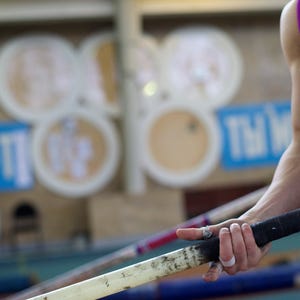Russia sports minister: We are ‘ashamed’ and ‘sorry’ about breaking anti-doping rules – USA TODAY
Russia’s Minister of Sport apologized for athletes and coaches who have broken anti-doping rules as the country’s track and field athletes face a ban from competing at the Summer Olympics in Rio de Janeiro.
In a piece published in The Sunday Times, a British newspaper, Vitaly Mutko acknowledged “serious mistakes have been made” by Russia’s sports federation management, athletes and coaches.
“Let us be clear. We are ashamed of them,” he wrote.
“We are very sorry that athletes who tried to deceive us, and the world, were not caught sooner. We are very sorry because Russia is committed to upholding the highest standards in sport and is opposed to anything that threatens the Olympic values.”
The country’s track and field team has been suspended since November, when a World Anti-Doping Agency independent commission found state-sponsored doping in the sport. The IAAF is set to decide on the team’s suspension on June 17.
Mutko described what he called “a road-map with WADA aimed at restructuring” Russia’s anti-doping agency, the Moscow laboratory and the ARAF (Russia’s track and field federation). He said the organizations are “taking a series of steps to demonstrate how committed we are to ensuring that sport in our country is clean and fair.”
Olympic hopefuls will undergo a minimum of three anti-doping tests carried out by the IAAF, in addition to testing they receive at qualifying competitions, Mutko wrote. He added that ARAF has made key leadership changes “to give the sport a fresh start.”
Mutko did not admit that the Russian government had any role in helping athletes dope.
Russian athletes have been under heavy scrutiny since WADA’s independent commission found a culture of doping that included coaches providing banned substances to athletes, RUSADA tipping off athletes when they’d be tested out of competition and the Moscow lab destroying more than 1,4000 samples before WADA’s investigators came to visit.
A report in the New York Times last week detailed a state-sponsored doping program during the 2014 Sochi Olympics, which involved switching out urine samples to ensure that athletes would have clean tests.
Grigory Rodchenkov, the former director of the Moscow lab, described a sophisticated doping scheme that involved a man believed to be an officer with Russia’s Federal Security Service, the Times reported Thursday.
Rodchenkov, who has moved to Los Angeles, also told the Times that he gave athletes a cocktail of anabolic steroids that would help them recover more quickly.
The IOC has asked the World Anti-Doping Agency to investigate the allegations in the Times report. On Friday, Mukto called the claims of systematic doping “absurd,” according to the Associated Press.
In The Sunday Times, Mutko guaranteed Russian athletes will compete clean.
“We will do everything humanly possible to ensure our athletes are a part of clean, fair and enthralling Games.”





